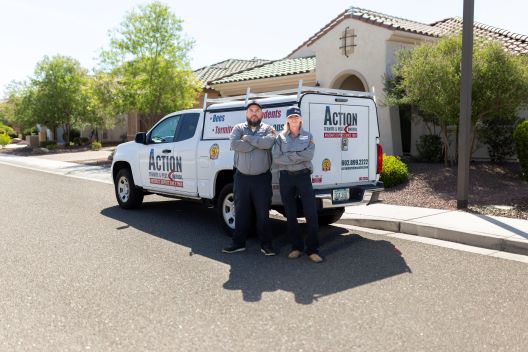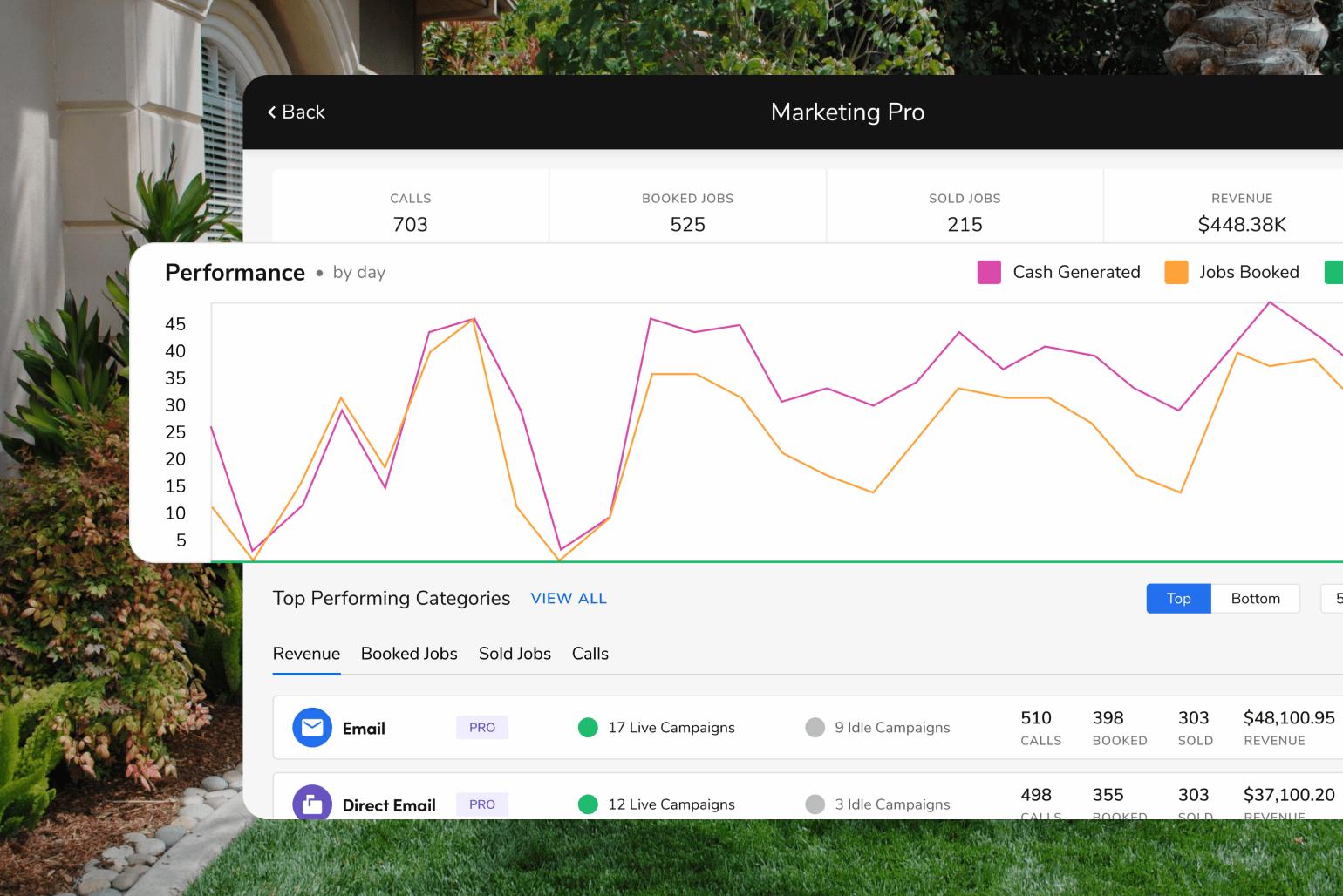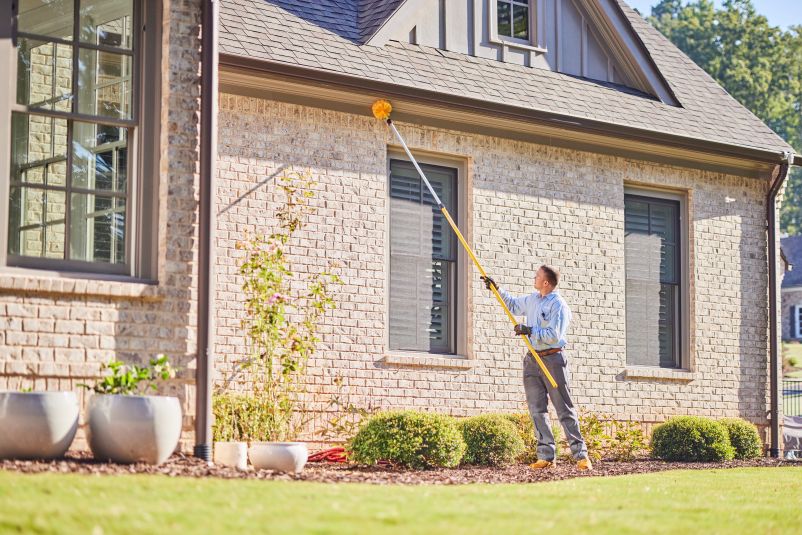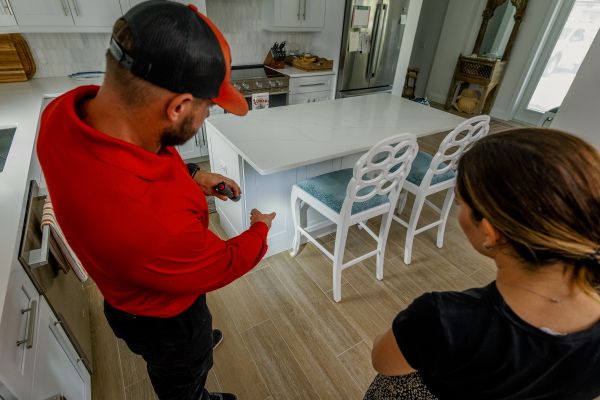Texas Pest Control License & Certification (Updated in 2024)

Working as a licensed pest control professional provides an in-demand career path with a low barrier to entry. According to the U.S. Bureau of Labor Statistics, a pest control provider in 2023 earned $43,470 per year on average, with a high school diploma or its equivalent as the typical entry-level education requirement.
However, a pest control technician or applicator must be licensed to perform services legally in the state of Texas. Obtaining a pest control license requires passing an exam, demonstrating hands-on work experience, and paying licensing fees.
Read on to learn the requirements for pest control licensure in Texas.
What is a Pest Control License?
A pest control license grants an individual or business the legal authorization to perform integrated pest management (IPM) services. State or local regulatory agencies issue pest control licenses to ensure pest control operators meet specific knowledge requirements and safely handle pesticides, herbicides, and other chemicals.
Holding a pest control license demonstrates the provider meets the mandated training, understands pesticide safety, and complies with federal and state laws.
The required types of licenses differ depending on the services offered by the pest control business.
Do You Need a Pest Control License in Texas?
Yes, you need a license to perform pest control services in Texas. The Texas Department of Agriculture’s (TDA) Structural Pest Control Service (SPCS) issues licenses for pest control operators and companies.
According to the agency, the “TDA is responsible for licensing and training pesticide applicators, overseeing worker protection, registering pesticides for sale in the state and working to minimize unnecessary impacts to agriculture while enhancing protection of endangered and threatened species.”
What Are the Different Types of Pest Control Licenses in Texas?
The types of structural pest control credentials in Texas include Apprentice, Technician, and four pesticide applicator license classifications.
Apprentice: Must be registered by a structural pest control business or noncommercial entity to complete the required training for a Technician license, but has not yet passed a Technician exam.
Technician: License holder must be licensed in at least one category and can perform pest control services under the direct supervision of a certified commercial or noncommercial applicator.
Responsible Certified Noncommercial Applicator: License holder must hold a certified noncommercial applicator license and be designated by the business licensee as the person responsible for training and supervising pest control apprentices and technicians employed by the business.
Certified Noncommercial Applicator: License holder must be an employee of a governmental entity, apartment building, daycare center, hospital, nursing home, hotel, motel, lodge, or warehouse and can perform at least one category of pest control work.
Certified Commercial Applicator: License holder must be licensed in at least one category as a certified commercial applicator and can perform pest control services, identifications, and control measures without direct supervision, but under general supervision of the responsible certified commercial applicator.
Responsible Certified Commercial Applicator: License holder is a certified commercial applicator who has been designated and notified by the business licensee to be responsible for training and supervision of all pest control operations of the business.
Business License: Any person engaged in structural pest control for compensation must secure a business license in the business's operating name from the department for each business location, including branch offices. A business licensee may not operate at any time without a designated responsible certified commercial applicator and current general pest control liability insurance.
In Texas, structural pest control licenses are divided into seven operational categories. Depending on the type of work performed, a person or company may be certified in one or multiple categories.
License Category | Description |
Pest Control | Inspect and/or control of pests, including insects and rodents, that invade a building but don’t attack the building’s structure. |
Termite Control | Inspect and/or control of termites, beetles, or other wood destroying organisms by means other than fumigation. |
Lawn and Ornamental | Inspect and/or control of pests on ornamental plants, shade trees and lawns. |
Structural Fumigation | Inspect and/or control of pests through fumigation of structures not primarily intended to contain food, feed, or grains. |
Commodity Fumigation | Inspect and/or control through fumigation of commodities and structures normally used to contain them. |
Weed Control | Inspect and/or control of weeds around homes and industrial environments. |
Wood Preservation | Pest control involves the addition of preservatives to wood to extend the life of wood products by protecting them from damage caused by insects, fungi, and marine borers. |
What Are the Licensing Requirements for Pest Control Contractors in Texas?
The Apprentice license requires an applicant to:
Obtain employment with a pest control company
Register with the Texas Department of Agriculture
The Technician license requires an applicant to:
Complete 20 hours of classroom training in general pest control standards.
Complete 8 hours of classroom training and 40 hours of on-the-job training as a licensed Apprentice in each category you’re seeking licensure.
The Certified Commercial Applicator license requires an applicant to:
Work as a licensed technician for at least 6 months and demonstrate proof of at least 12 months of work experience over the past 24 months.
The Responsible Certified Commercial Applicator license requires an applicant to:
Obtain a Commercial Applicator license.
The Certified Noncommercial Applicator license requires an applicant to:
Work as a licensed technician for at least 6 months and demonstrate proof of at least 12 months of work experience over the past 24 months OR obtain a degree in the biological sciences from an accredited college or university.
The Responsible Certified Noncommercial Applicator license requires an applicant to:
Obtain a Responsible Certified Noncommercial Applicator license.
What Are the Steps to Get a Pest Control License inTexas?
The Texas Department of Agriculture mandates the following requirements for pest control licensure.
Note for the Responsible Certified Commercial Applicator and Responsible Certified Noncommercial Applicator licenses, candidates need to simply register as the responsible agent after acquiring either a Commercial or Noncommercial Applicator license.
To obtain the Apprentice license
Register with the Department of Agriculture and apply for a Technician license within 10 days of starting employment with a licensed applicator.
To obtain the Technician license:
Pass a criminal background check.
Complete 20 hours classroom training in the general pest control standards.
Complete 8 hours of classroom training in each category you’re seeking licensure.
Complete 40 hours of on-the-job training in each category you’re seeking licensure.
Pass the Technician exam and pay the $64 exam fee.
To obtain the Certified Commercial Applicator license:
Complete the Certified Commercial Applicator license application.
Meet one of the following criteria:
Hold an SPCS Technician license for at least 6 months and demonstrate proof of at least 12 months of work experience over the past 24 months.
Obtain a degree in the biological sciences from an accredited college or university.
Show proof of previously holding a certified applicator license.
Pass the licensing exam and pay the $125 fee.
Mail the application to: Texas Department of Agriculture, P.O. Box 12076, Austin, Texas, 78711-2076.
To obtain the Responsible Certified Commercial Applicator license:
Obtain a Certified Commercial Applicator license.
Register as the party responsible for training and supervision of all pest control operations of the business.
To obtain the Certified Noncommercial Applicator license:
Complete the Certified Commercial Applicator license application.
Meet one of the following criteria:
Hold an SPCS technician license for at least 6 months and demonstrate proof of at least 12 months of work experience over the past 24 months.
Obtain a degree in the biological sciences from an accredited college or university.
Show proof of previously holding a certified applicator license.
Pass the licensing exam and pay the $125 fee.
Mail the application to: Texas Department of Agriculture, P.O. Box 12076, Austin, Texas, 78711-2076.
To obtain the Responsible Certified Noncommercial Applicator license:
Obtain a Certified Noncommercial Applicator license.
Register as the party responsible for training and supervision of all pest control operations of the business.
To obtain the Business license:
Complete the Business license application.
Obtain a minimum of $500,000 bodily injury and property damage coverage with a minimum total aggregate of $1 million for all occurrences.
Obtain a Business tax ID.
Register employees and list existing pest control licenses.
Pay the $300 license fee.
Mail the application to: Texas Department of Agriculture, P.O. Box 12076, Austin, Texas, 78711-2076.
What Are the Benefits of Getting a Pest Control License in Texas?
There are many benefits to obtaining a pest control license in Texas:
First and most importantly, it is required by law to be licensed to perform pest control services in Texas.
It will make you a more attractive candidate to prospective employers.
A trade license is proof of your experience and skill.
Only licensed pest control contractors can operate a business and advertise services, obtain commercial insurance, and bid on public and government projects.
Having a license protects your company and customers.
It also increases your earning potential.
What Is the Mean Salary for a Pest Control Technician in Texas?
The U.S. Bureau of Labor Statistics lists the annual mean pay for pest control workers nationally as $43,470 ($20.90 per hour) and $41,270 ($19.84 per hour) for those in Texas. As you might expect, that salary increases as you acquire more experience.
According to Indeed, the average wage for a pest control technician in Texas is $17.12 per hour or $42,580 for a full-time pest control technician per year.
Pay ranges can vary widely, depending on the city and many other important factors, including education, certifications, additional skills, and the number of years you have spent in your profession.
What Business Owners Need to Know
Getting the most out of a pest control worker, no matter where they are in their licensing journey, takes work. FieldRoutes cloud-based, all-in-one pest control software gives technicians and business owners the technology they need to operate efficiently, as well as the data they need to do it smartly.
The platform’s features include:
Drag-and-drop scheduling based on technician proximity, skills, or other filters
Optimized routing that prioritizes technician and fuel efficiency
Pest control reporting software that empowers business owners to make decisions that improve profitability
Robust integrations to deliver multiple data sources into a single platform
Integrated Sentricon system to ensure NPMA-33 compliance when tracking wood-destroying organisms
CRM to visualize the customer lifecycle and convert more leads
A mobile app to view inspection reports, communicate with customers, and create estimates in the field
To learn more, schedule a free demo with a product expert.
How Much Does It Cost To Get A Pest Control License in Texas?
Costs depend on the type of licensing:
Apprentice and Technician: Combined $125 license fee, $64 exam fee for each classification
Certified Commercial Applicator: $125 license fee, $64 exam fee for each classification
Certified Noncommercial Applicator: $125 license fee, $64 exam fee for each classification
Responsible Certified Applicator: $125 license fee, $64 exam fee for each classification
Responsible Certified Noncommercial Applicator: $125 license fee, $64 exam fee for each classification
Business License: $300 application fee
There is also the expense of securing the various types of insurance required for licensure, but that is primarily done by the contracting company, so this will only affect you if you decide to open your own business.
How Long Does It Take To Get A Pest Control License in Texas?
The length of time it takes to obtain a pest control license depends on the license type. However, the length of training for a pest control license is much shorter than for obtaining an electrician or HVAC license, which often takes three to five years.
The structural Technician license requires applicants to complete 20 hours of classroom training in the general pest control standards, eight hours of classroom training in each license category, and 40 hours of on-the-job training.
The various applicator licenses require a minimum of six months of work experience as a licensed Technician before becoming eligible for licensure.
Texas Pest Control Training Programs And Schools
If you choose to start your career path at a college or university, you can pursue a degree in biological sciences. This not only better prepares you for a pest control career, but can qualify you for a Commercial Applicator license without having to demonstrate work experience.
There are many higher education options throughout The Lone Star State that offer these types of training courses.
Here are some options:
Texas State University | San Marcos | BS in Biology — 4 years
The University of Texas | Austin | BS in Biology — 4 years
Texas A&M | Commerce | BS in Biological Sciences — 4 years
University of North Texas | Denton | BS in Biology — 4 years
Texas Licensing Exam Details
An applicant becomes eligible to sit for a Technician examination after completing the approved 20 hours of coursework in general pest control standards, 40 hours of on-the-job-training, and eight hours classroom training.
The Technician license exam is issued by PSI Exams and requires a passing score of 70% or better. Candidates can take the exam at one of several designated testing sites around Texas. Candidates must submit a certificate of completion along with their exam application showing they fulfilled the training requirements. The Technician exam includes a $64 exam fee.
An applicant becomes eligible to sit for a Commercial Applicator license by meeting of of the following requirements:
Hold an SPCS Technician license for at least 6 months and demonstrate proof of at least 12 months of work experience over the past 24 months.
Obtain a degree in the biological sciences from an accredited college or university.
Show proof of previously holding a certified applicator license.
The Commercial Applicator license exam is issued by PSI Exams and requires a passing score of 70% or better. Candidates can take the exam at one of several designated testing sites around Texas. The Commercial Applicator exam requires a $125 exam fee.
Who Issues Pest Control Licenses in Texas?
The Texas Department of Agriculture’s Structural Pest Control Service issues the pest control Technician license and the different classifications of Certified Applicator licenses.
Does My Texas Pest Control License Work in Any Other State?
The TDA maintains reciprocal agreements for pesticide applicator licenses in several states, including:
Arkansas
Indiana
Kansas
Louisiana
Minnesota
Mississippi
Nebraska
New Mexico
Oklahoma
According to the agency, “TDA licensed pesticide applicators who wish to reciprocate with another state should contact TDA to have their exam scores sent to that state's department of agriculture. The applicator will then need to contact that state to see what additional tests or requirements are necessary.”
Pesticide Applicator Specific Requirements: EPA Certification
Federal law requires any person who applies or supervises the use of restricted-use pesticides (RUPs) to be certified in accordance with Environmental Protection Agency (EPA) regulations. This certification is completed by each state through their Pesticide Safety Education Programs. All states meet the minimum EPA requirements, and some also apply stricter regulations.
The federal regulations require commercial applicators to show practical knowledge of core pesticide use and safety, as well as one specific category. Core safety includes knowledge of:
Pesticide labels
Pesticide hazards
First aid, personal protective equipment, and emergency response
Pesticides in the environment
Pest identification and management
Pesticide formulations
Laws and regulations
Application equipment and techniques
Do I Need to Renew my Texas Pest Control License?
Pest control applicator, technician, and business licenses require renewal every year. Licenses expire on the last day of the month in which the license was initially issued. The TDA is required to send out a renewal notice at a minimum of 30 days prior to the renewal date.
The TDA charges the following license renewal fees:
Business license: $300
Certified Applicators: $125
Technicians: $125
Candidates can apply for renewal online via the TDA’s BRIDGE system.
Continuing Education
In Texas, licensed Applicators are required to obtain two continuing education unit (CEUs) in general training and one unit in each category in which the Applicator is certified annually.
According to the TDA, CEUs “must be completed each calendar year for renewal of the Certified Applicator's license. Certified Applicators who do not meet the recertification requirements shall not be eligible to renew their licenses and will be subject to enforcement action.”
CEUs can be completed through in-person courses or online webinars, so long as the webinar features a live interactive speaker. The TDA maintains a list of state-approved CEU courses.
Resources
You can stay up to date on the pest control industry in several ways, such as:
Reading pest control blogs
Joining industry associations, such as the National Pest Management Association
Ready to Get Certified?
Getting a pest control license in Texas requires completing clear steps and requirements, ensuring high standards and safe practices. Whether you're starting out or looking to advance, understanding the different license types and necessary training is key to success.
To learn more about the pest control industry, including best practices, check out the FieldRoutes blog.





